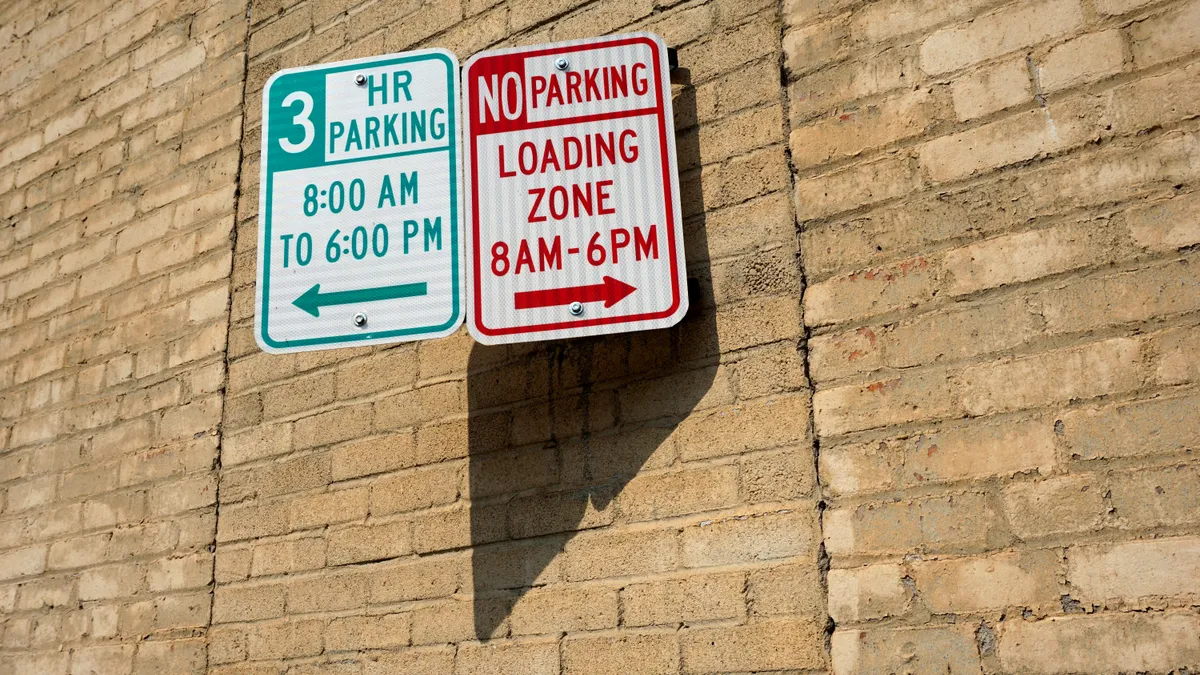Dive Brief:
- Chicago will begin testing parking enforcement technology and smart loading zones following an ordinance the City Council passed Wednesday. The technology will automatically issue tickets for parking or standing violations in areas with posted signs, such as bike lanes and commercial loading zones, according to a city press release.
- Mayor Lori Lightfoot and five aldermen asked the city council to consider the pilot projects to increase road safety in January after the parents of a three-year-old girl killed in a traffic collision filed a wrongful death lawsuit alleging the city allowed unsafe road conditions.
- “While we continue to deepen our robust investments in infrastructure improvements, these pilot programs give us another tool in our toolbox to improve safety for pedestrians and bicyclists, as well as speed up our bus network,” Lightfoot said in a statement.
Dive Insight:
New York City, San Francisco and Seattle operate similar parking and loading zone enforcement programs, while Los Angeles and Washington, D.C., are planning their own, the press release said. Local politicians have focused on parking enforcement in part to reduce unsafe driving behavior, which can increase the risk of a crash.
“By deterring drivers from illegally parking in bike lanes, bus-only lanes, bus stops, and crosswalks, we create better streets for all road users. We look forward to implementing the Smart Streets Pilots to evaluate how these initiatives can work best on a citywide scale,” Chicago Department of Transportation Commissioner Gia Biagi said in a statement.
The city hopes the technology can help Chicago address its rising traffic fatalities, which climbed more than 50% between 2019 and 2021. In 2021, more than 170 people died in traffic crashes in the city. Chicago hopes the pilots also will improve health equity by targeting the neighborhoods with “the city’s highest concentration of fatal and serious injury crashes,” Chicago Department of Public Health Commissioner Allison Arwady said in a statement.
Illinois Public Health Institute CEO Elissa Bassler said in a statement that “Improving safety in the public way is central to promoting active transportation and a healthy lifestyle for all Chicagoans.”
The pilots will run until June 2025. It’s unclear when they will kick off, however, as the city has to identify camera vendors and potential camera locations, according to the press release.











